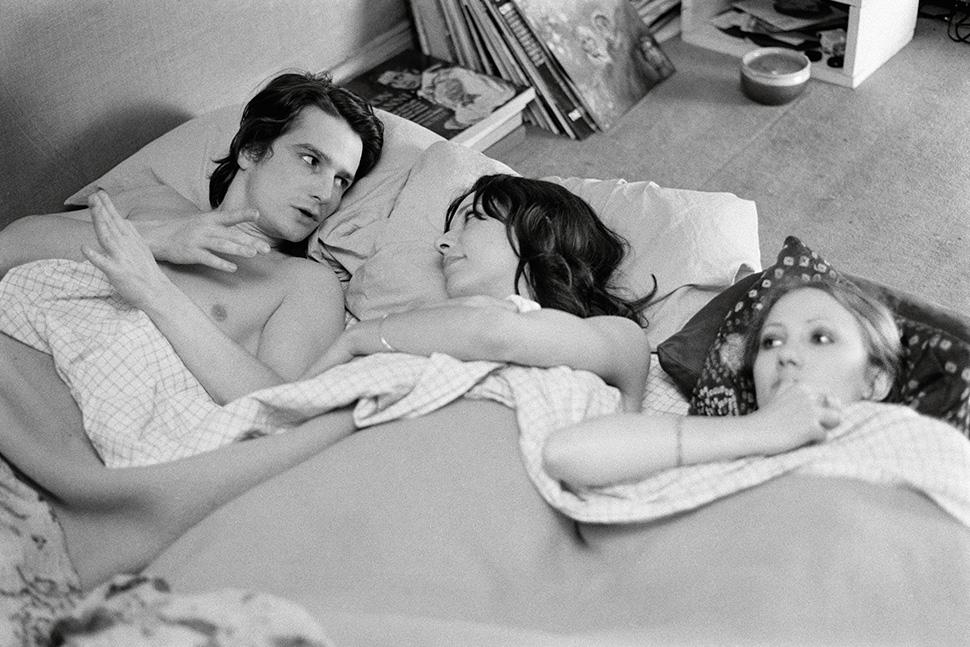“After starting out as light comedy with witty dialogues, Eustache turns it into a chamber drama in which, with the camera still and in long sequence shots, the characters express their feelings, their malaise and the difficult search for a new morale”. (Morando Morandini)
“It is so obvious to consider La maman e la putain as a faithful portrayal of relationships as they changed after May 1968, that we often forget that there is a great fantastic film behind this cult work. Paris is described as a nightmare: the characters find it impossible to move away, to leave one another. The ville lumière devours its own children, as suggested by the many iris shots borrowed from silent film, or the slow fades at the end that absorb and smother the light (…): It is therefore no surprise that La maman et la putain is the story of an act of vampirization, by Véronika towards Alexandre. Replacing a woman as beautiful as night, all artifice and compulsions, with the one as beautiful as day, who abandons him, the young man is unaware that he is offering his body and soul to the vampire”. (Jean Douchet)




